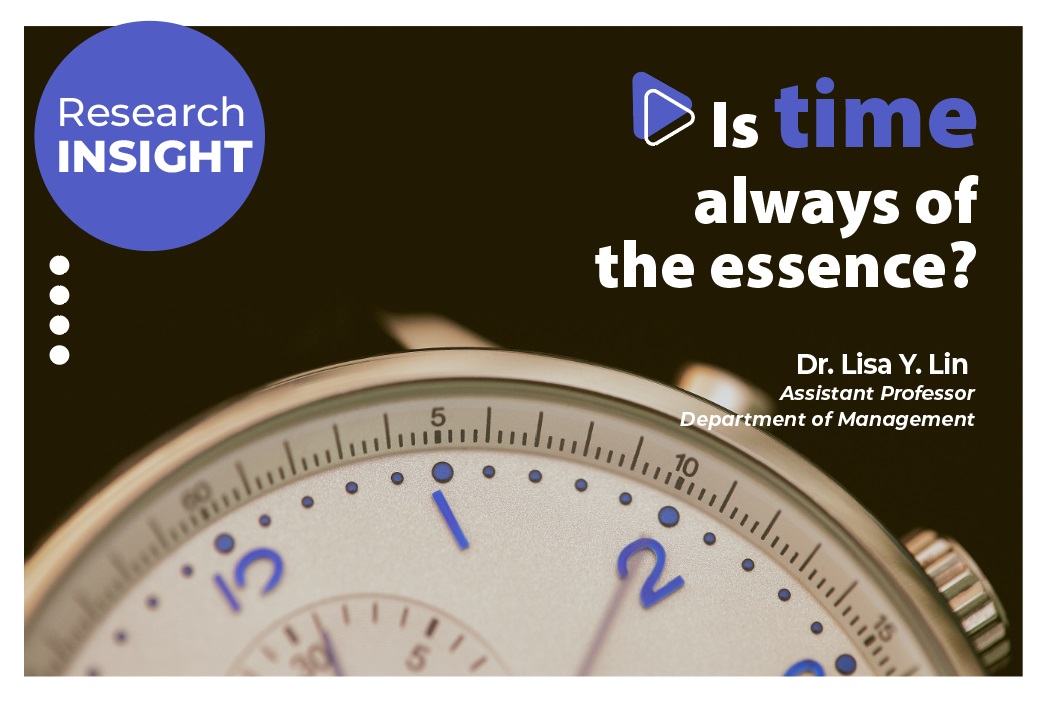School of business - research
Is time always of the essence?


In the long run, we are all dead. John Maynard Keynes’ iconic statement about public spending still resonates today. Businesses also face this classic dilemma: should they concentrate on meeting quarterly targets or focus on the future of the firm?
Exploring the impact of senior managers’ attitude towards time on corporate strategy, a recent paper1 showed how executives who keep an eye on the future (LTO managers) instead of obsessing over this quarter’s profit (STO managers) influence the strategic direction of companies.
Pressured to deliver results now, firms must also plan ahead. While STO managers excel at harnessing firm’s resources to drive current results, LTO managers prefer to look at many aspects of a problem over extended periods of time before making decisions. Committed to building long-term relationship with stakeholders, LTO managers also emphasise long-term effectiveness over current benefits.
Assuming senior managers reflect the priorities of their firms, researchers surveyed 750 firms in the Chinese semiconductor and pharmaceutical industries to assess how LTO managers make strategic decisions. Both considered high tech industries, these two sectors are very different across three important features: complexity, industry clock and innovativeness. More complex than the semiconductor industry due to its diverse group of stakeholders, the pharmaceutical industry is also more reliant on innovativeness. Meanwhile, its industry clock (or pace of innovation) is slower as pharmaceutical products can be sold for 7-15 years while most semiconductors products are obsolete within 3 years.
The research demonstrated that LTO managers’ decisions are strongly associated with 3 key facets of what academics and managers consider a sound strategic decision-making process: comprehensiveness, speed and creativity. The importance of each of these elements depends on the industry. If comprehensiveness and creativity are important when making decisions in complex industries that rely on innovativeness like pharmaceuticals, the ability to make quick decisions, while useful, is not crucial.
LTO managers may be better at making strategic decisions, but STO managers are often more effective at driving efficiency and generating immediate returns, especially in more benign environments or in low-tech industries. It seems time moves at different speed for everyone!
Reference:
1 Lin, Y., Shi, W., Prescott, John E., & Yang, H. (2019). In the Eye of the Beholder: Top Managers' Long-Term Orientation, Industry Context, and Decision-Making Processes. Journal of Management, 45(8), 3114-3145.